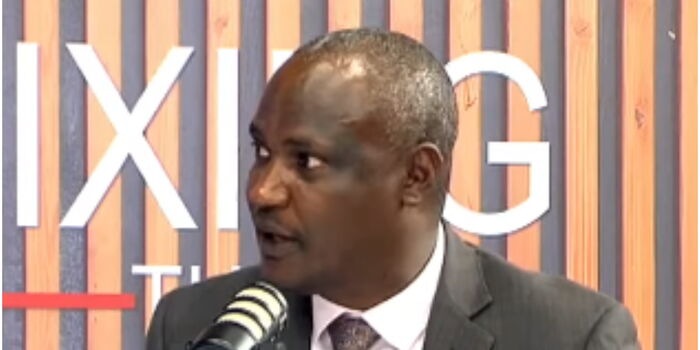Treasury Cabinet Secretary John Mbadi has issued a clarification on the fate of Kenya’s development programmes after United States President Donald Trump announced a temporary freeze on almost all foreign assistance.
While speaking to journalists during a retreat in Naivasha, Mbadi admitted that the government was bracing for tough times, adding that critical development programmes are still set to continue despite the US’s decision to freeze funding.
“We will have no alternative but to slash part of the development budget and use the funds to finance critical programmes that will be starved of cash if the US stops foreign aid,” the CS said.
Mbadi added that the government was working on implementing measures to ensure that programmes that were heavily dependent on foreign aid continued to run without hitches.
Treasury Cabinet John Mbadi during a past media engagement at Treasury Buildings in Nairobi.
National Treasury
“There is no cause for alarm as I have started to put measures in place to ensure that health programmes that depended heavily on foreign aid are not paralysed.”
One program is AIDS Relief (PEPFAR), which supports over 20 million people on antiretroviral drugs, mostly in Africa.
Not only will the stop-work order affect HIV patients but also it is set to put 25,000 medics and community healthcare workers at risk of losing their jobs.
As part of his “America First” agenda, Trump paused billions of dollars in global funding as he insisted that the United States would no longer ‘blindly dole out money with no return for the American people’.
The move had potentially devastating implications for several nations, including Kenya, which has reaped greatly from aid from the US in various sectors including health, agriculture, and security.
According to Aid Data Network, the US contributes approximately KSh252 billion annually to Kenya’s economy including Ksh129.4 billion in direct aid. Furthermore, US agencies like the United States Agency for International Development (USAID) have been a key driver in Kenya’s growth in various sectors including peacebuilding, devolution, and economic growth.
Despite all these sectors being at risk of suffering adverse effects from Trump’s executive orders, Mbadi insists it should be expected since the United States was transitioning into a new regime.
“President Trump took the action immediately he assumed office and it is normal for that to happen during a change of regime in any country,” he said.
The CS’s comments came after the Ministry of Health moved to avert fears that the insufficient ARVs.
“I want to assure Kenyans that we have sufficient stock of HIV commodities, including ARVs and testing commodities. We have strengthened our supply chain pipeline to ensure continuous availability,” Director-General for Health, Dr Patrick Amoth affirmed.
On January 24, 2025, a memo detailing President Trump’s order to reevaluate and realign United States foreign aid was released, effectively initiating a 90-day pause on disbursements of foreign assistance.
New US President Donald Trump. PHOTO/ Courtesy.


